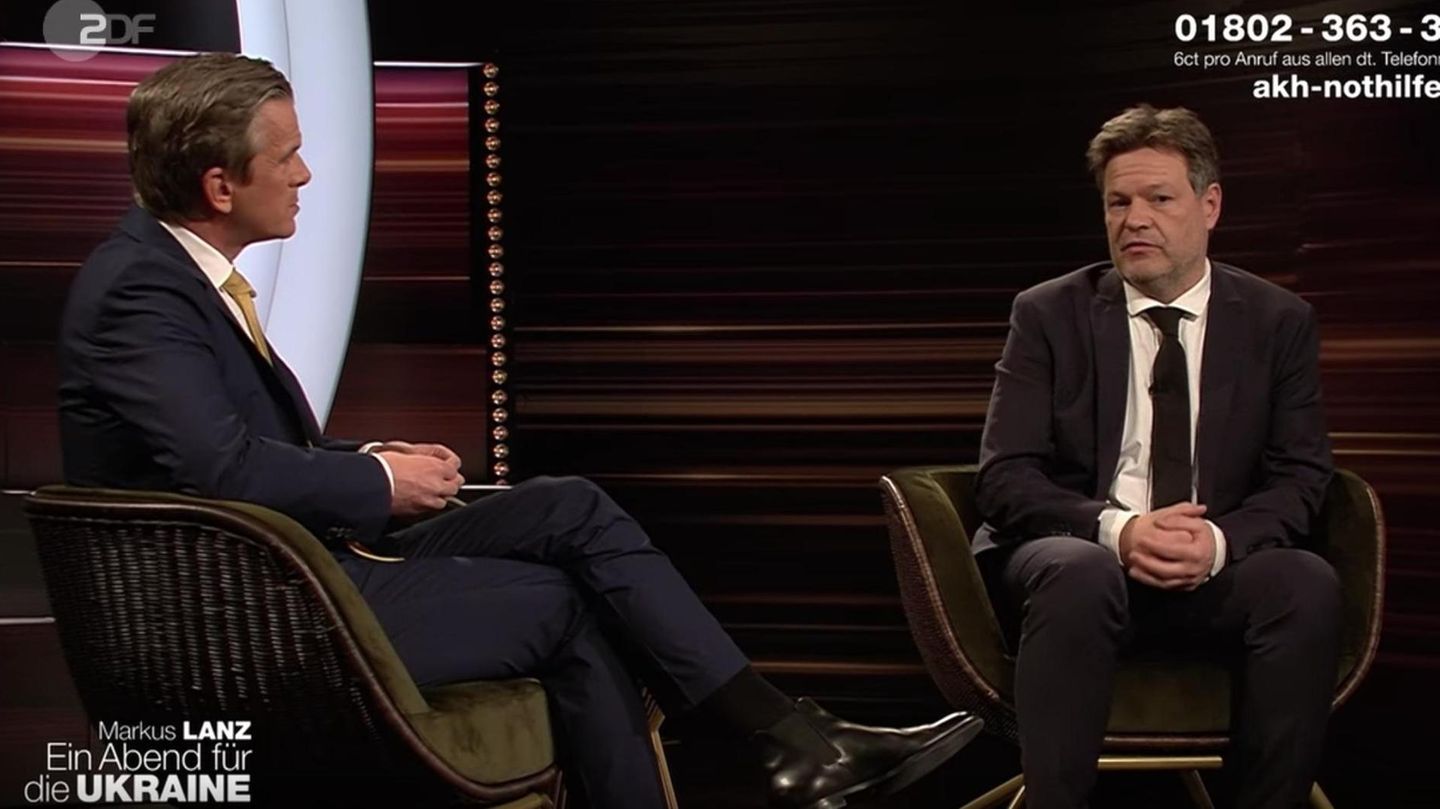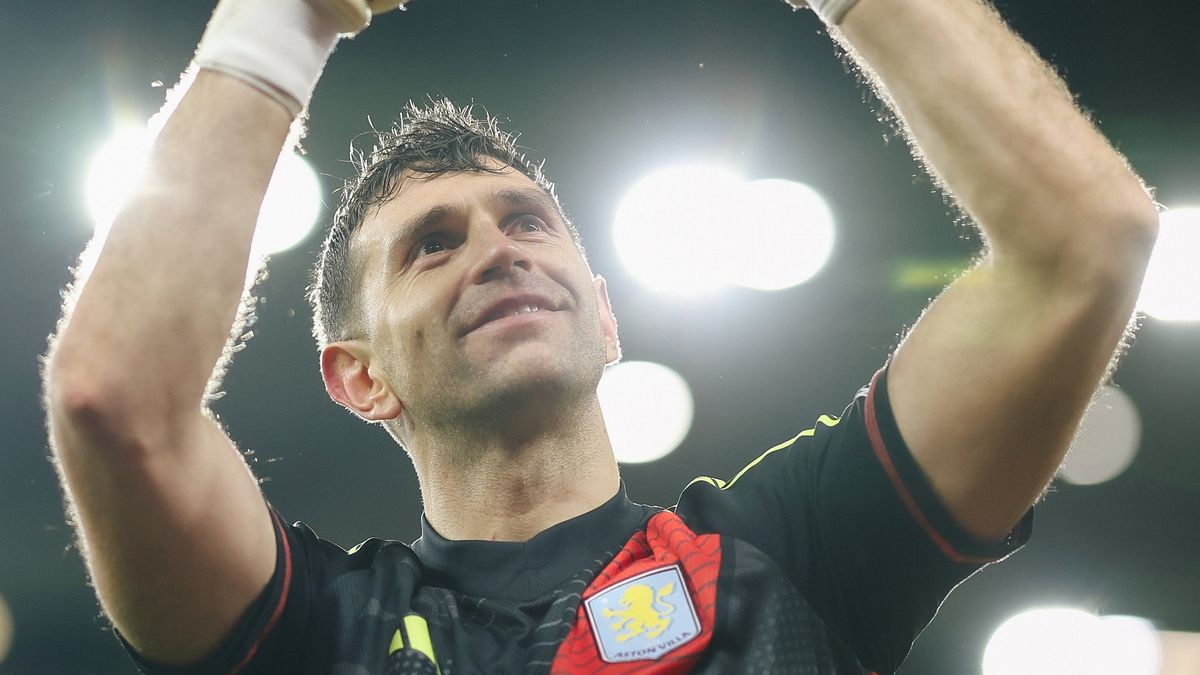The West is in a dilemma. Ukraine should be helped, but they don’t want to harm their own states. With Markus Lanz it becomes clear what a great danger we could face.
Arian Yazdani Kohneschahry
On the occasion of the war in Ukraine, Markus Lanz moderated a special program on ZDF on Thursday. The program “An Evening for Ukraine” was intended to collect donations. 4.17 million euros came together in the end. But anyone who had expected a classic fundraising gala with celebrities on the phones was completely wrong. In three rounds of talks, Lanz and his guests talked about how to help Ukraine without turning the whole of Europe into a battlefield. “Dilemma is the title of this whole show,” said Lanz aptly.
The show started very emotionally. Natalia Klitschko, wife of Vitali Klitschko, reported on the “worst weeks of her life”. Every morning she contacts Vitali and Wladimir Klitschko, unsure whether they are still alive.
Studio guest Anna Kostiuchenko also provided an emotional moment when she recounted how she fled Ukraine with her two youngest children shortly after the Russian invasion. The situation was terrible for her children. At times, she was only able to calm her crying children with medication.
Federal Minister of Economics Robert Habeck (Greens) was visibly touched. Nevertheless, the Vice Chancellor made it clear that rational decisions are necessary, especially in these difficult times. He gave a clear rejection of an immediate import stop of Russian oil and gas. This question is not only about “a little less comfort”, but about possible economic damage that would hit all parts of society hard. Nevertheless, Germany is not powerless. What is important is “precise and targeted work by the federal government.” A gradual boycott of coal and oil would already be underway. With gas, however, it is “a bit more difficult”, as Habeck said.
“Putin wants to shake Europe’s democracy to the core”
Migration researcher Gerald Knaus is much more concerned about the effects of the migration to Europe. He spoke of the “biggest refugee movement since the Second World War”. Over two million people have already fled Ukraine. But two million could quickly become ten million, Knaus warned. The expert rated the fact that the EU is acting as one and offering people refuge without much bureaucracy as a “historic decision”. Nevertheless, one should not “become sentimental and unrealistic.” There is a danger that chaos will ensue and that nationalists will try to seize power as a result. Then Putin would have won, said the migration researcher.
Meanwhile, Federal Interior Minister Nancy Faeser (SPD) did not want to draw any parallels to the 2015 refugee crisis. “People feel there is war in the middle of Europe,” but the situation is different now, said Faeser. People fleeing Ukraine often have a clear plan of where they want to go, as some also have acquaintances in Germany. Many would want to work and therefore target the big cities. It is currently not clear how many people Germany can take in, said the Interior Minister.
The support from society seems to be huge at the moment. The show reflected that. Studio guest Florian Wichelmann founded an initiative to provide apartments for refugees. Rainer König, head of the station mission at Berlin Central Station, who was on the scene, explained that his team’s entire day-to-day work had been turned upside down. One has long since reached the limit of resilience and can hardly plan from day to day, since many of his employees would be absent due to stress. Nevertheless, one tries to help the arriving refugees as best as possible.
Ukraine ambassador accuses Germany of cowardice
A real debate was sought in vain on the show for a long time. There was unanimity among the studio guests, who could be seen nodding in the background again and again. Markus Lanz also agreed with his guests several times and, for his standards, let them finish their speeches unusually often. On the other hand, Andriy Melnyk, Ambassador of Ukraine in Germany, who was on the line, disturbed the harmony at least a little. He accused the West of continuing to play by “Putin’s rules” and allowing itself to be intimidated by the Russian president.

“We need courageous decisions and no excuses,” Melnyk clarified. He sharply criticized the cancellation of the delivery of combat aircraft to Ukraine. The Polish government announced on Tuesday evening that it was ready to move MiG-29 fighter jets to the US Ramstein Air Force base in Rhineland-Palatinate and to make the machines available to the US. The fighter jets were to be delivered to Ukraine via this detour. However, the United States promptly rejected this offer. Chancellor Olaf Scholz (SPD) also spoke out clearly against this proposal on Wednesday. In the course of this, Melnyk spoke of a “cowardly decision”.
Alexander Graf Lambsdorff (FDP) could not leave the Ukrainian ambassador’s allegations uncommented. The foreign policy expert spoke of a “debacle” caused by the Polish government. Deliveries of fighter jets should have been discussed behind closed doors, otherwise it really looks as if Putin is determining Western policy. Graf Lambsdorff tried to explain that no one had any emotional problems in offering any support to Ukraine, but one had to decide rationally. This answer was certainly not satisfactory for Andriy Melnyk and Ukraine.
Source: Stern
David William is a talented author who has made a name for himself in the world of writing. He is a professional author who writes on a wide range of topics, from general interest to opinion news. David is currently working as a writer at 24 hours worlds where he brings his unique perspective and in-depth research to his articles, making them both informative and engaging.




